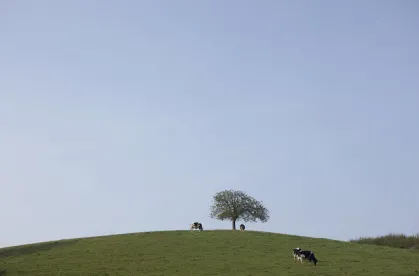Two Wisconsin Court of Appeals panels recently considered whether “manure” and “septage” fall under pollution exclusion clauses of insurance policies. One decision held that manure is not a pollutant, and insured a farmer after a manure application contaminated a neighbor’s well, while the other decision held that septage—a mixture of human urine, feces, house-hold chemicals, and water—is a pollutant, barring any insurance coverage. The panels’ analyses of the two cases illustrate how Wisconsin courts interpret pollution exclusion clauses for two different materials—manure and septage.
The two cases hinged on whether the contaminant at issue—manure or septage—was a “pollutant” under the respective insurance policies. The insurance policies were nearly identical, both expressly excluding coverage for losses from the release of “pollutants.” Pollutants were defined to be a solid, liquid, or gaseous irritant or contaminant, including “waste.” Materials that are recycled, reclaimed, or reconsidered may be considered “waste” under both policies.
Contamination of Property
In the first case, Wilson Mutual Ins. Co. v. Falk, Case No. 2013AP691 (WI Ct. App., Dist. 2, Dec. 11, 2013), dairy farmers fertilized their field with manure from their dairy cows according to a nutrient management plan prepared by an agronomist and approved by the county conservation division. A few months later, the Wisconsin Department of Natural Resources alleged that the farm’s manure had polluted an aquifer and neighboring wells. Thereafter, the neighboring landowners sought compensation for damages arising out of the well contamination. The circuit court concluded that the pollution exclusion in the farm’s policy applied so as to exclude coverage, finding that a “reasonable person in the position of the [dairy farmers] would understand cow manure to be waste.” The circuit court found that Wilson Mutual had no duty to defend or indemnify the dairy farmers and the dairy farmers appealed.
The Wilson panel examined the pollution exclusion from the standpoint of “a reasonable person in the position of the insured” while also taking into account the fact that a “substance may or may not be a pollutant under the terms of a policy exclusion depending on the context or environment in which the substance is involved.” Id. at ¶ 13 (citing Hirschhorn v. Auto-Owners Ins. Co., 2012 WI 20, ¶ 27; Langone v. American Family Mutual Insurance Co., 2007 WI App 121, ¶ 28). Applying these principles to the Wilson case, the panel found that the pollution exclusion clause in the Wilson Mutual policy did not apply to manure used as fertilizer on a farm. Id. at ¶ 14. Specifically:
A reasonable farmer would not consider manure to be a ‘pollutant,’ an ‘irritant,’ a ‘contaminant,’ or ‘waste.’ Cf. Hirschhorn, 338 Wis. 2d 761, ¶¶33-34, 37. Manure is an everyday, expected substance on a farm that is not rendered a pollutant under the policy merely because it may become harmful in abnormally high concentrations or under unusual circumstances. See Langone, 300 Wis. 2d 742, ¶26.
Id. The Wilson panel noted that “[m]anure in the hands of a dairy farmer is not a ‘waste’ product; it is a natural fertilizer….Manure, by act of nature, has always been universally present on dairy farms and, if utilized in normal farming operations, is not dangerous.” Id. at ¶ 15. Moreover, the court noted that Wilson Mutual could not express surprise that manure was not a “pollutant” because the policy covered property with the express purpose of pumping, storing and spreading manure (manure tankers, manure pump and manure spreaders). Id. at ¶ 16. TheWilson panel thus reversed the district court’s decision and held that the pollution exclusion clause did not bar coverage.
In the second case, Preisler v. Kuettel’s Septic Service, LLC, Case No. 2012AP2521 (WI Ct. App., Dist. 3, Jan. 14, 2014), the Kuettel family operated a septic pumping service and lived across the street from the Preisler family. The two families entered into an agreement to spread septage from the Kuettel’s septic business on Preisler’s farm fields as a fertilizer and the Kuettels received authorization from the Wisconsin Department of Natural Resources to apply a specific amount of septage on the Preislers’ fields. Several years and several septage applications later, the Preislers discovered their well water had elevated nitrate levels that resulted in Preislers’ cattle dying at an uncharacteristic rate.
Preislers filed suit against the Kuettels, alleging that the Kuettels were negligent in spreading and storing septage and caused a private nuisance and trespass through elevated nitrate levels. The Preislers added the Kuettels’ insurers to the case and the insurers filed motions for summary and declaratory judgment, arguing their policies did not provide coverage for the Preislers’ claims. The circuit court agreed, holding that “septage” – consisting largely of human feces and urine – was unambiguously “waste” and therefore a pollutant. Id. at ¶10. Because Preislers’ losses resulted from the “discharge, release, escape, seepage, migration or dispersal” of the septage, the Kuettels’ insurance companies were under no duty to defend or indemnify the insured.
Both the Kuettels and the Preislers appealed the circuit court’s decision. Under the relevant policies, a “pollutant” was defined as any solid, liquid, gaseous or thermal irritant or contaminant. Id. at ¶18. Courts have interpreted a “contaminant” as something that makes something else “impure or unclean by contact or mixture.” Id. ThePreisler panel affirmed the circuit court’s decision and concluded septage was “plainly a contaminant and irritant.” The septage in this case was waste materials from septic tanks, grease traps, floor pits and catch basins – all materials that are “widely considered undesirable precisely because they cause impurity and uncleanliness.” Id. at ¶19.
The Kuettels argued that the Preislers consented and intended to have the septage sprayed on their land, in contrast to the legal precedent where the waste was unwanted. See id. at ¶24. The panel dismissed this argument, noting that the policies’ definitions of “pollutant” did not include an element of intent. Id. (noting also that Preislers clearly did not consent to having septage applied in such quantities that would cause well contamination).
Finally, both the Kuettels and the Preislers argued that the circuit court interpreted the policies contrary to the Kuettels’ reasonable expectations. Id. at ¶26. However, the court will not look to the expectations of the insured in the face of a clear and unambiguous exclusion, as the court found here. Id. at ¶26-27, 36. Because the Kuettels’ reasonable expectation was a focus of the appeal, the panel addressed the argument despite the fact that the language of the policy was unambiguous. The panel reviewed the applicable case law and concluded that a “reasonable insured would not view spreading or injecting septage on farmland as an ordinary, wholly unremarkable event.” Id. at ¶32. Therefore, although the expectations of a reasonable insured were irrelevant to the panel’s analysis, this argument would have also failed. Id. at ¶36, 38. The Preisler panel affirmed the circuit court’s denial of coverage.
Different Materials, Different Legal Analysis
The two panels took different approaches to determining whether the material at issue qualified as a pollutant under the insurance policies. Under Preisler, the court’s analysis ended after it found that septage was clearly a pollutant under the definition of the insurance policy. In Falk, the court found the pollution exclusion policy to be ambiguous as applied to manure, so it went one step further in its analysis and looked to the reasonable expectations of the insured. The insureds in Falk were dairy farmers, and from the perspective of the reasonable dairy farmer, the court held that manure is not considered a pollutant, irritant, or contaminant; it is “liquid gold” because it is used to fertilize the fields that grow the food that nourishes the cows.
These two cases show how two similarly worded insurance policies can lead to different liability scenarios based on the facts of each case. If you regularly deal with either manure or septage applications, be sure you know whether you are insured for any accidental property damage caused by your activities. Talk to your insurance provider, or consult an attorney, and go through the details of your policy and farming operation to identify the risks related to your operation and policy language.





 />i
/>i
